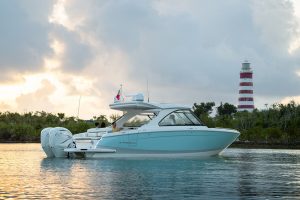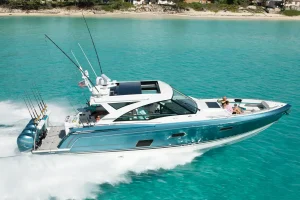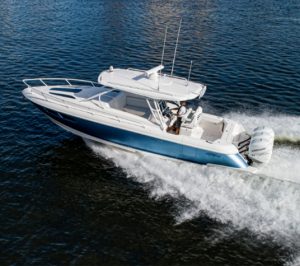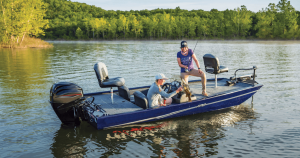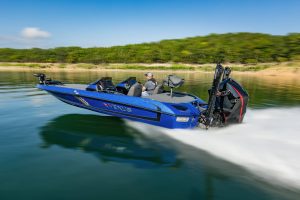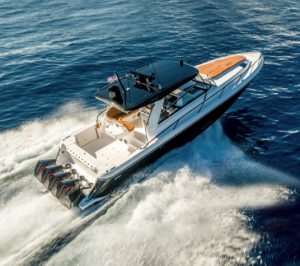Freshwater Fishing Boats: A Comprehensive Guide for Anglers
Freshwater fishing boats are designed specifically for anglers who enjoy pursuing their favorite catches in inland bodies of water such as lakes, rivers, and ponds. These boats come in a variety of styles, sizes, and price ranges, offering the perfect vessel for every type of freshwater adventure. From specialized bass boats to versatile all-purpose fishing boats, there is a model to suit the needs of both beginners and experienced fishermen alike.
All-purpose fishing boats provide incredible adaptability, allowing them to be used in different types of waters, from rivers to lakes (MarineMax). Aluminum fishing boats and bass boats are also popular choices for freshwater fishing excursions(Discover Boating). The price of freshwater boats can range from $3,519.00 to $103,352.00, depending on the type and features desired(Boat Trader).
Types of Freshwater Fishing Boats
Freshwater fishing boats come in various shapes and sizes, each catering to different fishing preferences and environments. In this section, we will discuss some of the most popular types of freshwater fishing boats that anglers commonly use on lakes and rivers.
Bass Boats: These boats are specifically designed for bass fishing and are popular among competitive anglers. They often feature powerful engines, low and sleek profiles, and ample casting space(source).
Pontoon Boats: With their large, flat decks and stable platforms, pontoon boats are perfect for leisurely fishing excursions on calm lakes. These boats offer plenty of seating and storage space, making them ideal for group outings(source).
Aluminum Fishing Boats: Lightweight and versatile, aluminum fishing boats are suitable for various freshwater environments. They're easy to maneuver, low-maintenance, and can be customized with a range of accessories for different fishing needs(source).
Jon Boats: These flat-bottomed boats are simple in design, making them affordable and easy to use. They're perfect for navigating shallow waters and narrow channels, which allows anglers to access hard-to-reach fishing spots(source).
Fish-And-Ski Boats: As the name suggests, fish-and-ski boats cater to both fishing and water sports enthusiasts. These boats are versatile and family-friendly, offering the best of both worlds for those who enjoy a mix of activities on the water(source).
Deck Boats: Similar to pontoon boats, deck boats provide spacious platforms and comfortable seating arrangements. However, they also have a sleeker design and can support higher speeds, making them suitable for more adventurous fishing trips(source).
Features to Consider
When choosing a freshwater fishing boat, it's important to consider the features that will best suit your needs and preferences. Here are some key features to keep in mind as you shop for your ideal fishing vessel.
Fishing amenities: A good fishing boat should be equipped with fishing-friendly features such as rod holders, baitwells, tackle boxes, and casting decks. The number and type of fishing amenities will vary depending on the boat's intended use and specialization. Some boats, like jon boats, are designed for general freshwater use, while others are more specialized for specific fishing techniques or environments (boats.com).
Boat size and configuration: Freshwater fishing boats range in size from small 10-foot dinghies to 30-foot cabin boats designed for big water (boats.com). Consider where you plan to fish and how many people you want to accommodate on your boat. Additionally, think about the boat's hull and propulsion type, as these factors will affect the boat's performance, stability, and maneuverability.
Maintenance and ease of use: Simple and straightforward boat designs, such as the Smoker Craft 2072 Sportsman, are easy to clean and maintain, making them an attractive option for those who value minimal upkeep (Boat Trader Blog). Aluminum boats are also popular for their lightweight and low-maintenance material, and they are often used in ponds, lakes, and rivers (Boat Trader Blog).
Seating and storage: Analyze the seating arrangement and storage capacity of the boat. Do you prefer pedestal or bench seating, and is there ample storage for your gear and personal items? The configuration should cater to the needs of the anglers onboard.
Top Brands
Freshwater fishing boat enthusiasts have various top brands to choose from when looking for the ideal boat. These brands are known for their quality craftsmanship, innovative design, and performance in various fishing conditions.
Lowe boats, specifically the Lowe SF 212, are known for their versatile function in freshwater fishing scenarios. The SF 212, for example, is designed with a spacious layout and comfortable seating areas, making it perfect for both fishing and family fun.
Lund is another top brand in the freshwater fishing boat market, offering models such as the Lund 189 Pro-V GL. Renowned for their quality aluminum construction and advanced fishing features, Lund boats provide excellent performance in a variety of fishing environments.
Ranger boats, like the Ranger Z Comanche 521L, provide high-performance bass boats that cater to the needs of professional anglers. These boats are designed for speed, efficiency, and ultimate stability while casting and trolling.
Other noteworthy brands include:
- Alumacraft - known for their Competitor 185 model, as mentioned on the Boat Guide.
- Campion - offering the Rage R22, a favorite in freshwater fishing.
- Crestliner - manufacturers of the popular 1650 Fish Hawk model.
- Smoker Craft - creators of the 172 Pro series, loved by anglers.
These top brands provide a wide range of options for freshwater fishing enthusiasts, catering to diverse fishing styles and preferences. When shopping for a boat, consider the specific fishing conditions and features that will best suit your needs to find the perfect freshwater fishing vessel.
How to Choose the Right Boat
When selecting a boat for freshwater fishing, several key factors should be considered. First, determine the type of boat that best fits your needs. Common types of fishing boats include bass boats, multi-species boats, and aluminum fishing boats (Hagadone Marine). Each type caters to different fishing styles and experiences.
Another crucial factor is the boat's draft, which refers to the height from the bottom of the boat (keel) to the waterline (MarineMax). Boats with shallow drafts are better suited for fishing in shallow waters, while deeper drafts are more stable in choppy conditions.
Here are some other factors to consider when choosing a freshwater fishing boat:
- Size and Capacity: Ensure the boat's size is adequate for the number of people and the amount of gear you intend to carry.
- Storage: Evaluate whether the boat has enough storage for your equipment, including rods, tackle, and other essentials.
- Fuel Efficiency: Assess the boat's fuel consumption, as this could significantly impact your budget over time.
- Price Range: Set a budget and explore boats within that price range.
Make sure to read boat reviews and visit boat shows or dealerships to get a better understanding of the options available (TakeMeFishing). Finally, consider whether a new or used boat is more suitable for your needs and budget.
Maintenance and Storage
Freshwater fishing boats require regular maintenance and proper storage to ensure their longevity and performance. This section covers essential maintenance tips and storage practices to keep your fishing boat in top condition.
Key aspects of boat maintenance include inspecting the engine and flushing it after each trip. This prevents salt and other debris from accumulating and causing damage.
Additionally, it is crucial to maintain your propeller by checking for bent blades, nicks, and dents, as this could affect your boat's performance. Lubricate the propeller shaft regularly to ensure smooth operation.
Keeping your boat clean is also essential. Clean your boat using a mild detergent or a cleaner specifically designed for boats, and rinse it off with fresh water. To prevent mold and mildew, dedicate an area for dry storage, such as a garage or shed. Store your boat on a trailer or a rack to keep it off the ground, and cover it with a breathable, waterproof cover to protect it from the elements.
Proper storage is crucial when it comes to maintaining the quality and safety of your freshwater fishing boat. Make sure you store your boat in a dry, secure location that is free from moisture, sunlight, and extreme temperatures. To help you with this, you might want to consider investing in a high-quality boat storage solution.
Safety Tips
Fishing in freshwater environments can be an enjoyable experience, but it is essential to prioritize safety while on the water. Below are some safety tips to help ensure a safe and enjoyable outing.
1. Boater Safety Course: Taking a boater safety course can provide essential knowledge regarding boating safety and requirements. The course can be completed online in most states, and you should check your state for more information on boater safety programs.
2. Life Jackets: Always remember to wear a life jacket while on the water. It is one of the most critical safety measures to follow, as emphasized by Discover Boating.
3. Clothing and Sun Protection: Wear thin layers of clothing that include water and wind protection as the final layer. Additionally, apply waterproof sunscreen with an SPF of at least 15 to protect your skin from sunburn. (source)
4. Insect Protection Measures: Equip yourself with appropriate insect protection, including proper clothing and insect repellents.
5. Neat and Organized Boat: A clean and organized boat can help prevent potential accidents. Keep hooks, lures, and other sharp objects in tackle boxes to avoid injuries. (source)
6. Weight Distribution: In high wind conditions or rough waters, ensure proper weight distribution in the boat to help maintain stability. Slowing down your boat speed in these situations can also bring the bow upward for a smoother ride. (source)
By following these safety tips, you can help make your freshwater fishing experience both enjoyable and secure.

